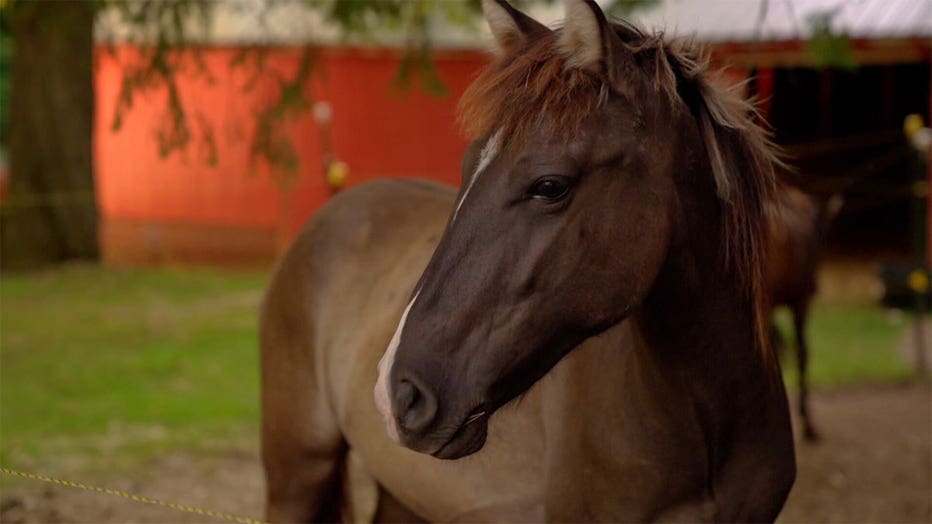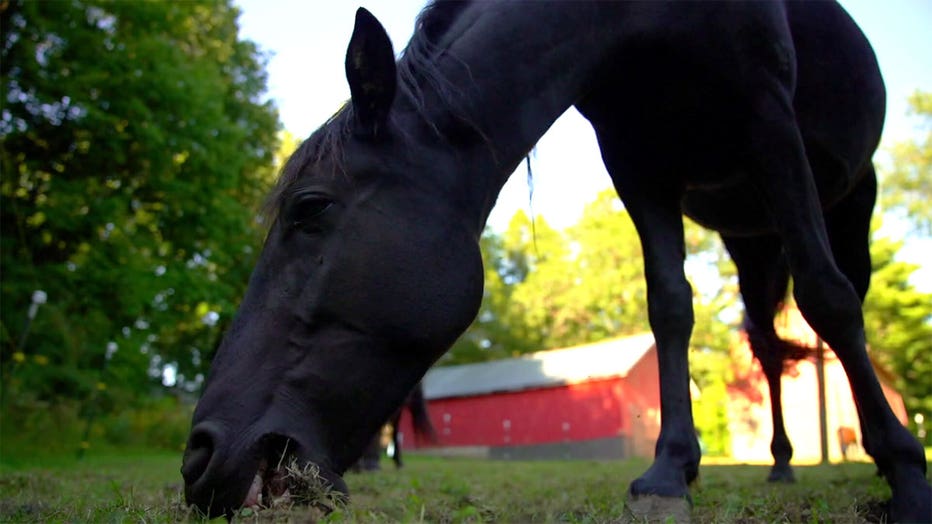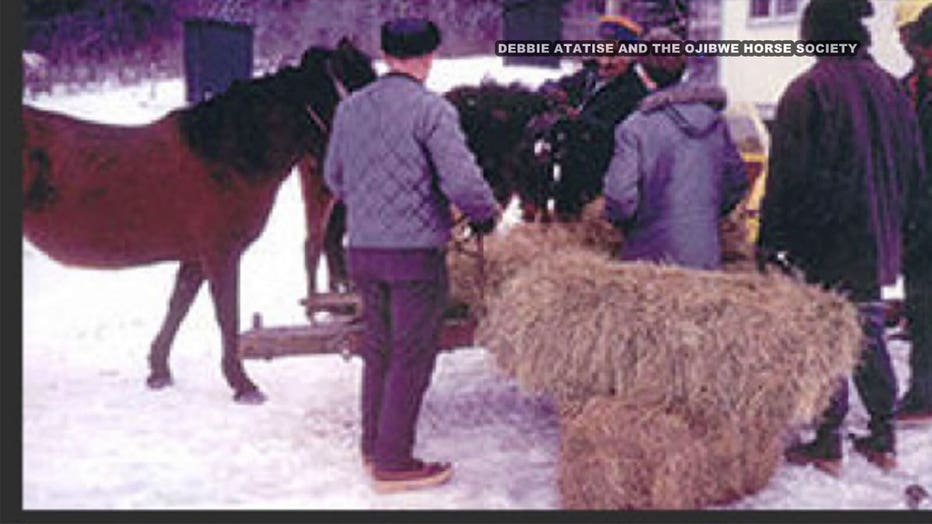The Humble Horse: Western Wisconsin woman starts nonprofit to save rare Ojibwe horse

The Humble Horse: Western Wisconsin woman starts non-profit to save rare Ojibwe horse
In the early 1900s, there were thousands of Ojibwe horses, as they are called along the Minnesota-Canada border. They were workhorses for the Ojibwe people, helping with transportation, logging, and trapping. But as more Native Americans were moved onto reservations, the U.S. and Canadian governments declared the horses a public nuisance, and they either exterminated them or sold them to make dog food or glue.
(FOX 9) - On a small piece of property in Spring Valley, Wisconsin, some links to the past are moving into the present.
Em Loerzel and her husband just closed on the farm a couple of weeks ago and their small herd of horses is making itself at home.
"Not only do they have a permanent place here, but 8 1/2 acres of the ancestral land is back under Anishinaabe stewardship. That is exciting too," said Loerzel.
As a descendant of the White Earth Nation, Loerzel grew up hearing stories about the forest-dwelling ponies her elders grew up with, who adapted to fit their environment.

A Wisconsin woman is working to save the rare Ojibwe horses. (FOX 9)
"I like to call them such medium horses. Big ponies. Small horses," said Loerzel.
Their small stature helped them navigate the densely wooded terrain and they have a special flap in their nostrils to prevent cold air from getting into their lungs and fuzzy ears to protect them from insects.
"These horses ranged from Winnipeg to Sioux St. Marie, all the way down to Milwaukee. Wherever Ojibwe and Anishinaabe people were, the horses were there too," said Loerzel.
In the early 1900s, there were thousands of Ojibwe horses as they are called along the Minnesota-Canada border.
They were workhorses for the Ojibwe people, helping with transportation, logging, and trapping.
But as more Native Americans were moved onto reservations, the U.S. and Canadian governments declared the horses a public nuisance, and either exterminated them or they were sold to make dog food or glue.

Ojibwe horse (FOX 9)
"They'd get into people's gardens and start eating the food because they were so habitual to hanging around where people lived close by. That's where they found safety and security around people," said Darcy Whitecrow, who works with Ojibwe horses on Grey Raven Ranch in Canada.
By the 1970s, there were only four mares left, and they were going to be killed by the Canadian government.
But four men from Minnesota drove north in what was called "The Heist Across The Ice" to bring them to a farm in Orr, Minnesota, where they were bred with a Spanish mustang and the breed was brought back from the brink of extinction.
"In an era where we seem to have a lot of divisions, one thing that is notable is that this was an effort by indigenous and white people to save the horses and still is," said Dr. Kim Campbell, who also works with Ojibwe horses on Grey Raven Ranch in Canada.
Loerzel says since then, the number of Ojibwe horses has risen to around 180 and most of them are in Canada.

When she heard about a Canadian rancher who could no longer afford to take care of some of her herd, Loerzel raised enough money to rescue 6 of them back in April and brought them to the states.
"It finally felt like a relative who had been missing for generations was finally coming back home. So they are really special to us. They are considered this really powerful, spiritual animal," said Loerzel.
Loerzel also started a nonprofit called The Humble Horse, both to raise awareness about the breed and to help revive it.
"I think when people think about horse culture and Native American people they think about the southwest tribes, they think of the Lakota people. So making sure Anishinaabe people can come and reconnect with the horses and learn about them and learn 'hey we had horses', we have horses only 45 minutes away," said Loerzel.
Her efforts are already paying off.
One of Loerzel's horses recently gave birth to a foal named Animikii, which means "Thunderer" because he was born after a thunderstorm...
"My dream is to see these horses come back and see them come back in our ancestral communities and have our relatives back," said Loerzel.
And in the process, give Ojibwe communities in Wisconsin and Minnesota a chance to reclaim part of their heritage.
"Now that he's here, we can start thinking what's the 5-year, what's the 10-year plan of this breed and how can we do it sustainably for the planet for ourselves and for these horses."

